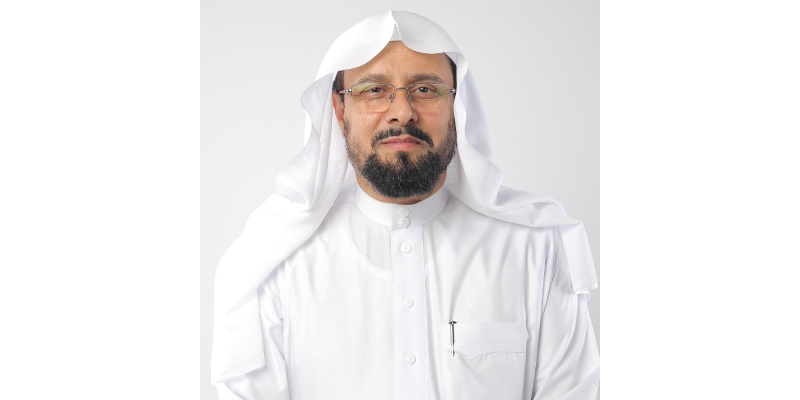SAEED ALGHAMDI – IMPORTANCE OF DIALOGUE

Dr. Alghamdi spent his life as a scholar researching Islamic doctrine and contemporary religious doctrines. His knowledge and research are used to help readers avoid extremist behavior and to discourage intolerance. Finding the right reasons to live peacefully is critical for people all over the world. It aids in the improvement of the environment, the development of relationships, and the enjoyment of life. Dr. Alghamdi is an active peace advocate, promoting methods to help communities and groups coexist peacefully. His articles are frequently published in several newspapers; they are popular because they introduce readers to new ideas and concepts.
The purpose of dialogue
In his book ‘Dialogue – is it better to understand or to be left speechless?’ Dr. Saeed explains that there have been numerous discussions about dialogue, its kinds, and related concepts in recent years, to the extent that some have deemed it an alternative to the vast majority of other means of change and influence. There is no doubt that dialogue is preferable to alternative methods for achieving agreement, reconciliation, or a positive concession between parties with opposing viewpoints. This could be accomplished by persuasion and educating others that conversations are means for persuasion
He adds that the topic of the dialogue is rich in content and abundant in sources and that his debate will be limited to two crucial dialogue purposes:
- Understanding: this refers to the scientific conveyance of knowledge to the mind, based on proof and argument, and the inference of mental, innate, or sensory evidence, or via emotional means.
- To be left speechless: this refers to silencing the opponent and severing his argument using logical, demonstrative, or abstract rhetorical construction.
He specifies that when it comes to winning any dialogue, blowing one’s opponent away is frequently seen as a necessity. Unfortunately, this shouldn’t be the beginning point for determining which approach to take, with the exception of those who seek conquest and victory regardless of whether they are correct. As Allah Almighty said: “but the disbelievers argue in falsehood, ˹hoping˺ to discredit the truth with it” [Al-Kahf: 56]. It is wrong to aim to destroy one’s opponent as the basis for every conversation, when it should only be used as an exception. This issue will vary according to various factors and circumstances; therefore, it can be separated into the following four sections:
- The first entails both clarification and shock. This occurs in circumstances requiring an objective scientific condition, in which the interlocutor is not convinced by the evidence and proofs; therefore, to be left speechless is to dispel one’s suspicions and clear one’s vision. In this instance, shocking such a person is equivalent to treating a specific situation with medication. After treatment, the medication is discontinued.
- The second requires explaining through logic without the need to shock, and to adopt this principle is usually expected. This is the path of truth-seeking interlocutors, as well as the path of education, advocacy, advice, preaching and guidance. Such path requires wisdom, sound advice, and the ability to debate any issue with composure.
- The third entails the need to shock without aiming to be understood. This strategy is used against arrogant individuals, those who arrogantly follow falsehood; those who are more arrogant than the word arrogant can express; those who quarrel with falsehood; and those who attempt to spread their falsehoods and misguidance with eloquent words or actions.
- The fourth requires neither explanation nor shock. This is the case in Sharia-permissible situations where there is no scientific condition, such as personal tastes, sounds, colours, food, and drink, and the like. For instance, one individual may enjoy the sound of a recital while another does not. This does not require an explanation because it cannot satisfy the requirement of objectivity. Unfortunately, many individuals debate about topics of this sort and engage in lengthy discussions or even arguments. If people realise from the start that it is unnecessary, they would not waste their time on such useless activities.
Dr. Saeed Alghamdi – Early Life and Achievements
Dr. Alghamdi was born on December 28, 1961, in the Kingdom of Saudi Arabia. He is a retired lecturer of the Islamic creed and contemporary religious doctrines. During his teaching days, his research work was appreciated by many and contributed to Islamic Studies profoundly. After acquiring a Bachelor’s degree from Sharia Abha University in 1982, he earned a Master’s degree in Islamic Creed and Contemporary Religious Doctrines from the University of Imam Riyadh City. Later, he got his PhD from King Khalid University in Islamic Creed and Contemporary Religious Doctrines.
As a notable author, he has achieved several accolades to his credit. Some of his renowned books include ‘Questions of Terminology’, ‘Restrictions When Dealing With Dissentious Prophecies’, ‘Original Reference Points’, ‘Introduction To Civilization And Cultural Shocks’, ‘The Reality And Rules of Heresy’, ‘Proving The Characteristics of Allah, ‘Face and Hands’’, ‘Baath Party, its History, and Ideology’, ‘How Preachers Cheat’, and ‘How Attitudes to Modernity Deviate Faith’.
Millions of people have praised Dr. Alghamdi’s contributions to clarifying the Islamic viewpoint and connecting with people from various backgrounds to discuss complex issues on a regular basis.